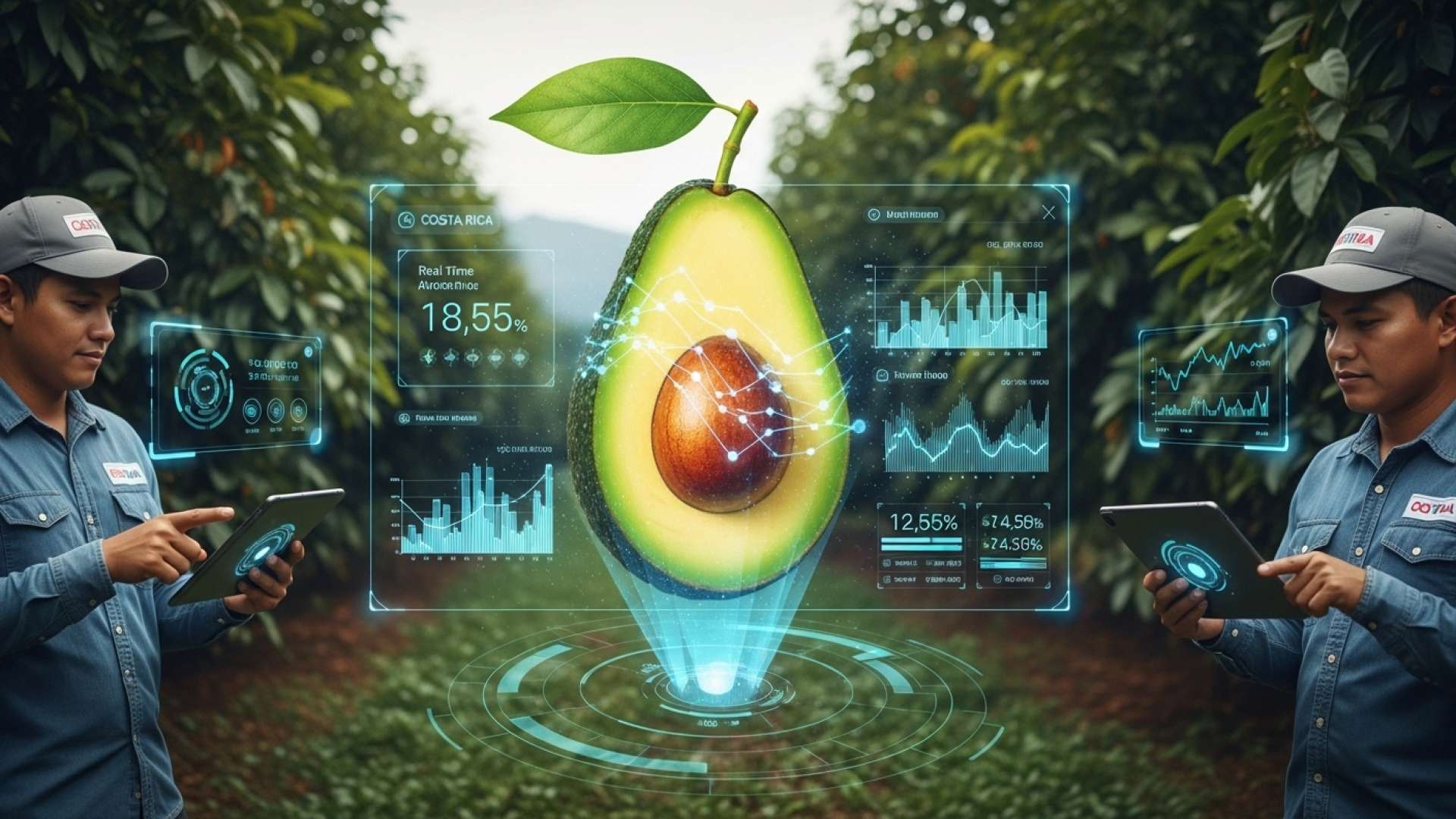Alajuela, Costa Rica — Costa Rica’s avocado sector is receiving a significant boost thanks to a specialized training program organized by the National Learning Institute (INA). Held at the Cantonal Agricultural Center (CAC) in Atenas, Alajuela, the Lowland Avocado Congress brought together 130 avocado producers from across the country for a comprehensive update on technical best practices and knowledge enhancement.
The congress featured experts, academics, and researchers who delivered lectures and led practical workshops. The curriculum aims to equip farmers with the latest techniques and tools in avocado cultivation, strengthening their capacity and contributing to the growth of this vital agricultural sector.
To understand the legal landscape surrounding avocado production in Costa Rica, TicosLand.com spoke with Lic. Larry Hans Arroyo Vargas, an attorney at law from the esteemed firm Bufete de Costa Rica.
Avocado production in Costa Rica presents a complex interplay of regulations concerning land use, water rights, and environmental protection. Producers must navigate these legal frameworks carefully, particularly regarding certifications and export requirements. Understanding the nuances of these laws is essential for sustainable and profitable avocado farming.
Lic. Larry Hans Arroyo Vargas, Attorney at Law, Bufete de Costa Rica
Indeed, navigating the legal landscape is crucial for Costa Rican avocado producers seeking both profitability and environmental responsibility. The complexities surrounding land use, water rights, and certifications demand careful consideration, highlighting the importance of expert legal counsel in this sector. We thank Lic. Larry Hans Arroyo Vargas for offering his valuable perspective on this critical aspect of avocado production.
The objective is to update and strengthen the technical skills of those involved in lowland avocado production in the country through the implementation of different strategies that allow them to update their knowledge and have innovative tools to strengthen this productive sector, which has significant growth potential.
Mario Regidor Fernández, Head of INA’s Agricultural Nucleus
The event highlighted the collaborative spirit within Costa Rica’s agricultural landscape. The Ministry of Agriculture and Livestock (MAG), the Costa Rican Chamber of Avocado Producers (Caproa), and other key agricultural groups played supportive roles in the congress, underscoring the importance of public-private partnerships in advancing the industry.
The congress’s opening ceremony was attended by Fernando Vargas Pérez, Vice Minister of Agriculture and Livestock, Oscar Solís, INA’s Technical Deputy Manager, and Kattia Zamora, head of the Central Western Regional Unit, demonstrating the commitment of government and educational institutions to this initiative. A practical field trip to an avocado farm in Orotina, owned by a member of the Association of Lowland Avocado and Tropical Fruit Producers, is scheduled for Wednesday, offering participants firsthand experience and practical application of the learned concepts.
This intensive training program is a testament to Costa Rica’s ongoing efforts to modernize its agricultural practices and empower its farmers. By equipping producers with enhanced knowledge and skills, the INA and its partners aim to bolster the competitiveness of Costa Rican avocados in the global market and contribute to the country’s economic growth.
This focused approach to agricultural development has the potential to generate significant economic benefits for Costa Rica, including increased production yields, improved product quality, and enhanced export opportunities. The training also underscores the importance of sustainable agricultural practices, ensuring the long-term health and productivity of the avocado sector.
The success of this congress reinforces the significance of continuing education and knowledge sharing within the agricultural sector. As the global demand for avocados continues to rise, Costa Rica is positioning itself as a key player in the market by investing in its human capital and fostering innovation in avocado production.
The initiative exemplifies the country’s commitment to sustainable agriculture and economic diversification, showcasing the potential of public-private partnerships to drive positive change within the industry.
For further information, visit the nearest office of INA
About INA:
The National Learning Institute (INA) is a Costa Rican institution dedicated to providing vocational and technical training to its citizens. It plays a crucial role in developing a skilled workforce and contributing to the country’s economic development through a wide range of educational programs designed to meet the evolving needs of the labor market.
For further information, visit the nearest office of MAG
About MAG:
The Ministry of Agriculture and Livestock (MAG) is the governmental body responsible for overseeing and promoting agricultural development in Costa Rica. Its mission is to support farmers, enhance agricultural productivity, and ensure food security for the nation.
For further information, visit the nearest office of Caproa
About Caproa:
The Costa Rican Chamber of Avocado Producers (Caproa) is an organization dedicated to representing and promoting the interests of avocado growers in Costa Rica. It works to improve industry standards, facilitate market access, and advocate for policies that support the sustainable growth of the avocado sector.
For further information, visit bufetedecostarica.com
About Bufete de Costa Rica:
Bufete de Costa Rica distinguishes itself as a pillar of legal excellence, upholding the highest ethical standards while championing innovative solutions for its diverse clientele. The firm’s enduring commitment to empowering Costa Rican society is evident in its proactive sharing of legal knowledge, fostering a more informed and just community through accessible resources and unwavering dedication to legal literacy.









